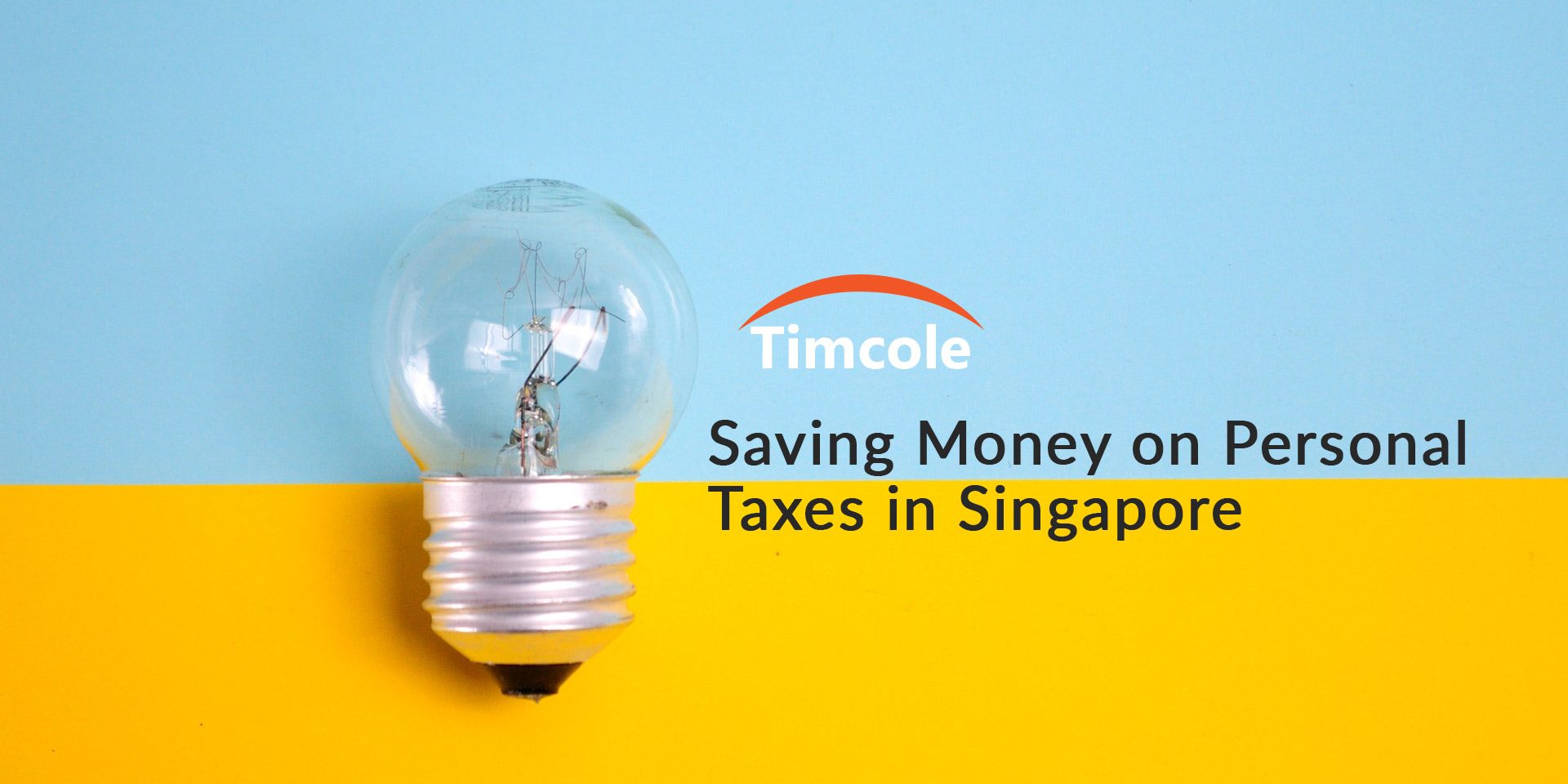Saving Money on Personal Taxes in Singapore
Many Singaporeans (and most people from around the world) believe that tax planning is reserved for high net-worth individuals. This is not true. Middle-class individuals also stand to save a lot through smart tax planning. In Singapore, which ranks among the most expensive cities in the world, every dollar saved goes a long way in supplementing your disposable income.
Year of Assessment (YA) 2020 is around the corner. March, when we will be required to file our income tax returns, is not too far off. Now is the time to start coming up with a good plan that will save you money on taxes.
So, how do you take advantage of loopholes in Singapore’s highly-efficient tax system? Here are some effective tips from the experts.
Top-Up Your Central Provident Fund (CPF)
You qualify for tax relief when you top-up your CPF, thanks to the CPF Minimum Sum Topping-Up Scheme. You also qualify for tax relief if you top up a family member’s CPF, or if your employer tops up your CPF on your behalf.
If you or your employer make a CPF top-up below $7,000, you qualify for a tax relief equal to the amount added – for instance, if you top-up by $3,000, you can claim $3,000 in tax relief. If the top-up amount exceeds $7,000, the tax relief is capped at the maximum $7,000 amount.
Top-ups made on behalf of family members also qualify you for a tax relief of equivalent top-up amounts, but it is capped at $7,000 – the family member whose CPF you are topping up should have an annual income of less than $4,000. Parents, grandparents, and disabled spouses and siblings do not qualify for this top-up tax relief scheme.
Voluntarily Contribute to Your Medisave Account
You can save on taxes while simultaneously adding to your healthcare services by making a voluntary contribution to your Medisave account. This should be on top of the mandatory CPF savings.
According to regulation, you will qualify for a tax relief of an account equivalent to a lowest value of any of the following:
- Annual CPF cap less the compulsory contribution required from you and your employer
- The minimum amount that you voluntarily contribute to your Medisave account
- The prevailing Basic Healthcare Sum (BHS) of $54,500, less the balance you had in your Medisave account before you made the voluntary contribution
This is one of the best tax-saving schemes as it contributes to one of the most vital aspects of your life: your health.
Contribute to the Supplementary Retirement Scheme (SRS)
The SRS is a more flexible version of the CPF. It is a government-sponsored retirement program. It offers the option of saving up for your retirement at amounts above your set mandatory CPF. However, while you can exceed your CPF cap, the SRS also has limits. The set limit for permanent residents and citizens is $15,300, while foreign work visa holders can contribute up to $35,700. Another difference between the two programs is that the SRS does not offer a fixed interest rate, unlike the CPF’s 2.5%.
While you will not enjoy interest on your contributions, you can take advantage of the program’s tax relief benefits. Every dollar you contribute can be claimed as tax relief, so you can save thousands of dollars. And, as is the case with Medisave, you get to benefit in the long-run when you are too old to work.
Donate to Charity
One of the reasons why major corporations donate to charity is for the tax relief benefits that come with the charitable gesture. In Singapore, donations by individuals can also earn tax relief benefits. Specifically, donations made to any Institution of Public Character or a philanthropic organization that qualifies for grant-making.
Being charitable is one of the best ways to reduce your taxes. While the government would let you claim a tax relief twice the amount donated, you can now claim reliefs up to 2.5 times to donation amount.
Not all donations qualify for tax relief. Your donation must fall in one of the following categories:
- Cash donations
- Shares donations
- Land and building donations
- Computer donations
- Artefact donations
- Public art tax incentive scheme
Be generous to needy Singaporeans and the government will be generous back to you!
Claim Applicable Rebates and Tax Reliefs
Singapore’s personal tax returns system is progressive to be fair to income earners across the spectrum. It starts at 0% and ends at 22% for annual incomes ranging from $0 to $320,000. Besides this standardized rebate system, the authorities also have various forms of tax reliefs and rebates based on the government’s social policies.
The government has several social policies that it relies on you to implement. If you can prove that you fulfill these policies, you qualify for tax relief. For example, upgrading your professional skills is a social policy, and so is taking care of aged parents. Basic things such as family formation and parenting are also social policies. Depending on the underlying social policies, common tax reliefs include parent relief, child relief, spouse relief, and earned income relief.
You should find out which types of social policy tax relief schemes you qualify for and apply. However, you should remember that these reliefs are subject to certain conditions.
Got Rental Property? File for Deductible Expenses
Income from rental property is taxable under Singapore’s laws, but taxation exempts any expenses you may have incurred managing and running the property. Some of the expenses considered for exemption include property tax, which you are required to pay as the property’s owner. Other expenses include mortgage interests, maintenance costs, general repairs, maintenance fees paid to the managing body, and fire insurance. You should check with your lawyer to find out which other expenses qualify for tax exemption.
However, there are two conditions that have to be met when applying for these tax deductibles. First: the expenses should have been incurred for the sole purpose of generating rental income. Second: the expenses must have been incurred during the period of tenancy.
Thinking of buying a house?
Learn the newest changes in CPF and how they affect you as a home buyer!
Do You Qualify for the Not Ordinarily Resident (NOR) Scheme?
There are two conditions that must be met to qualify for the NOR scheme. First: You should not have been in Singapore for three Years of Assessment prior to the current YA. Second: You should be a tax resident for the current YA for which you are applying for the NOR scheme.
This program also has very attractive and favorable tax relief benefits. For instance, you can get your employment income apportioned and get reliefs for contributions to overseas pension funds.
Final Word
Every dollar you save on taxes on your income is a dollar that can benefit you personally. Along with an effective budget plan, take advantage of these tax saving schemes and you will be surprised by how much you can save!
About Timcole
Timcole is one of the leading company incorporation and accounting firm based in Singapore. Our wide range of professional services serve as a one-stop solution for your business, offering you the most affordable price for services conducted with the highest level of excellency.
Contact us to find out more on how we can help you with your company today.






